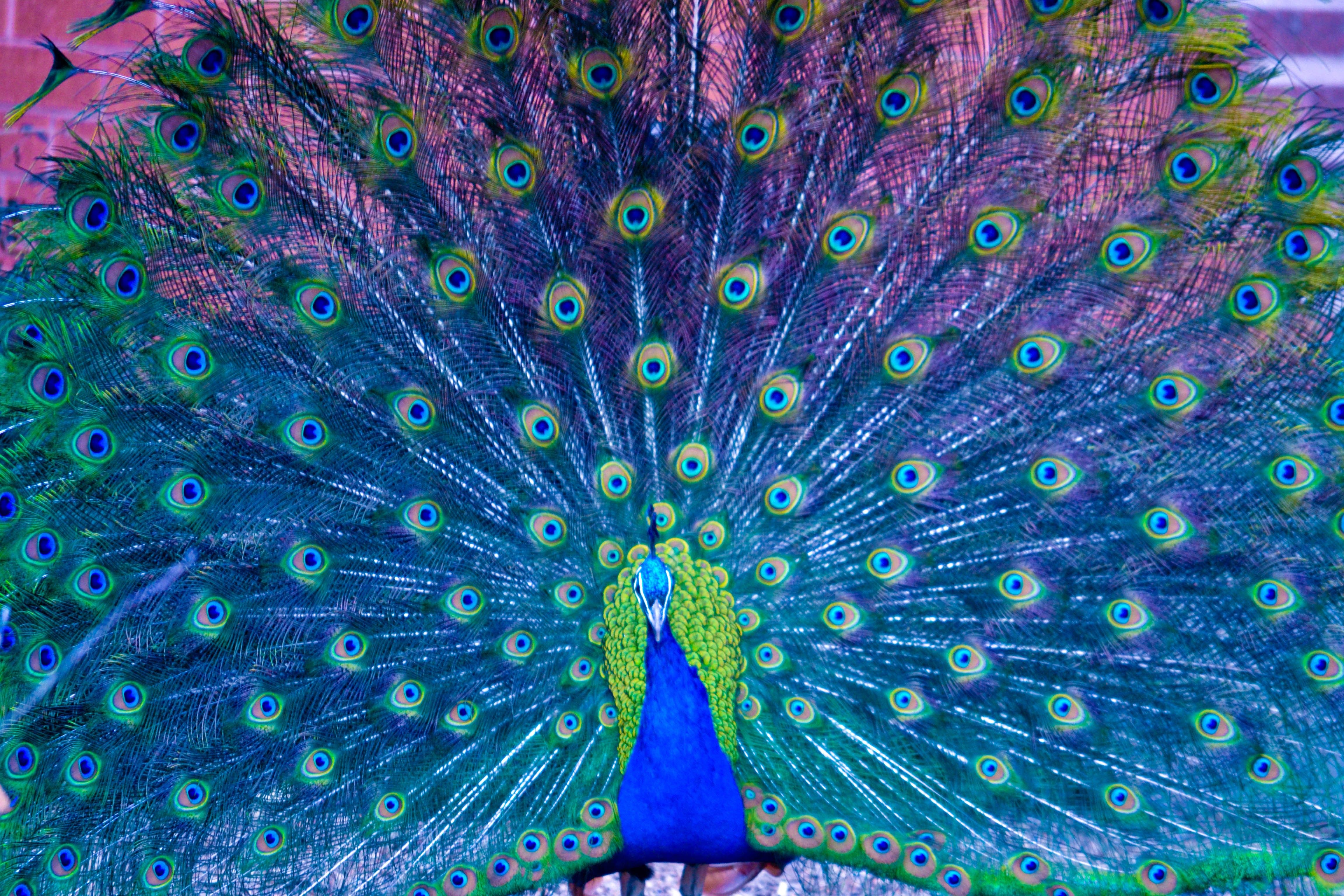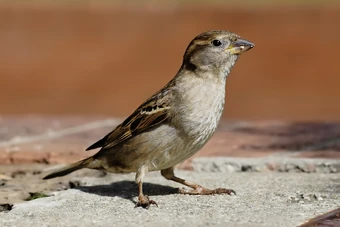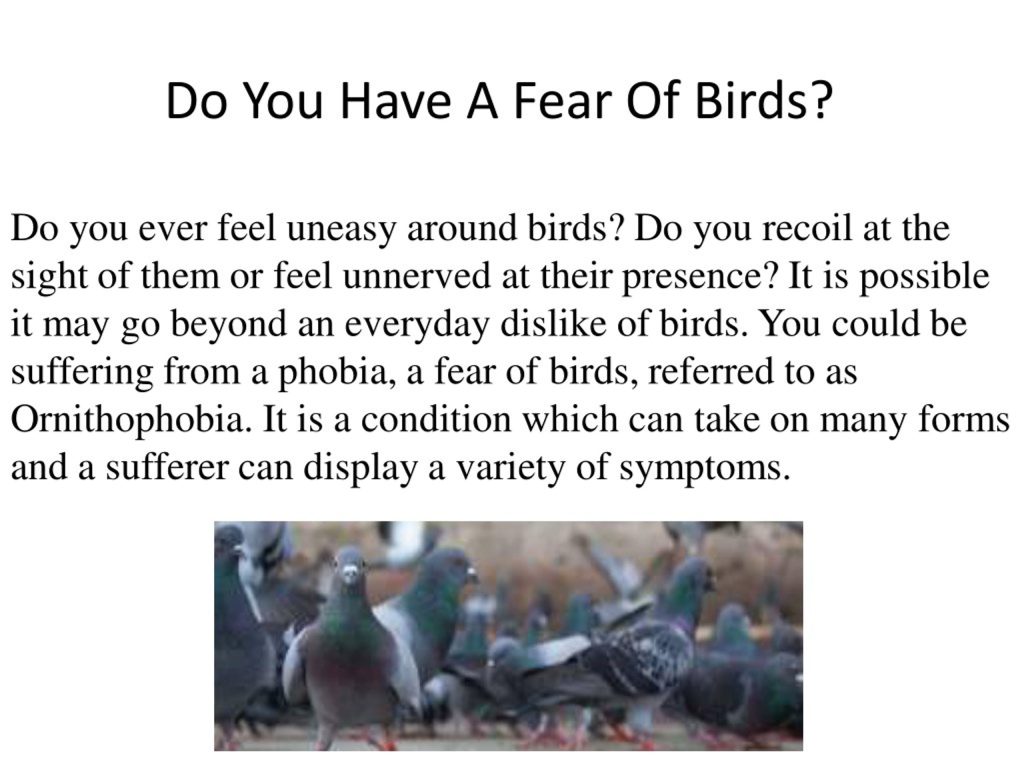Have you ever felt a sudden rush of fear just by seeing a bird nearby? You’re not alone.
The fear of birds, known as ornithophobia, can be more than just a simple dislike—it can affect your daily life in surprising ways. If you’ve ever wondered why this fear happens or how it might impact you, this article will guide you through everything you need to know.
Keep reading to uncover the causes, symptoms, and ways to overcome this common yet often misunderstood fear. Your journey to understanding starts here.

Credit: www.youtube.com
Bird Phobia Basics
Bird phobia, also called ornithophobia, is a strong fear of birds. This fear can cause panicor anxietywhen near birds or even thinking about them. People with this phobia may feel uneasy, nervous, or want to avoidplaces where birds are present.
Common Symptoms
- Rapid heartbeat and sweating
- Feeling dizzy or faint
- Shortness of breath
- Shaking or trembling
- Strong desire to escape
Typical Triggers
- Seeing birds flying or walking nearby
- Hearing bird noises or calls
- Being near bird nests or feathers
- Watching birds on TV or in pictures

Credit: phobia.fandom.com
Causes Of Bird Phobia
Genetic factorscan make some people more likely to fear birds. This fear may run in families. If parents are scared of birds, children might feel the same way. Genes can affect how the brain reacts to certain animals.
Past experiencesalso play a big role. A person who was once scared or hurt by a bird may develop a lasting fear. Even a loud bird noise can cause anxiety. These memories stick and cause strong reactions.
Environmental influencesshape how people see birds. Growing up in a place with many birds might help people feel calm around them. But if birds are seen as pests or threats, fear can grow. Media stories about bird attacks also add to worries.
Impact On Daily Life
People with a phobia of birds often show avoidance behavior. They may stay away from parks, gardens, or places where birds gather. This can limit their daily activities and social life. Avoiding common outdoor spots can cause frustration and isolation. Some may even avoid windows or balconies to not see birds.
The emotional effects can be strong. Feelings of fear, anxiety, and panicmay happen when birds are nearby. This fear can cause rapid heartbeat, sweating, or shaking. Constant worry about seeing birds may affect sleep and mood. Living with this phobia can be stressful and tiring.
Diagnosing Bird Phobia
Bird phobia means feeling very scared of birds. It can cause panic, fast heartbeat, or avoiding places with birds. Recognizing these signs helps in diagnosing this fear properly.
Professional Assessment
Doctors and therapists help with bird phobia. They ask questions to understand fears. They might watch reactions to bird pictures. Tests are used to check anxiety levels. Professionals find the best treatment. Therapy or medication may be suggested. Experts give advice and support.
Self-assessment Tips
Think about your feelings when you see birds. Do birds make you scared or nervous? Write down your thoughts about birds. Keep a diary of your reactions. Note any physical symptoms like sweating or fast heartbeat. Talk to someone you trust about your feelings. This can help you understand your phobia better.
Treatment Options
Therapy approacheshelp people face their fear of birds slowly. Talking with a therapist can teach ways to stay calm. One common way is exposure therapy, where a person sees birds in small, safe steps. This helps reduce fear over time.
Medicationmay be used to ease anxiety symptoms. Doctors sometimes give medicines to help calm nerves during therapy. These do not cure the phobia but make treatment easier.
- Self-help strategiesinclude learning relaxation techniques like deep breathing.
- Keeping a journal to track feelings and progress can help.
- Practicing mindfulness helps people stay present and not worry about birds.
- Reading about birds and their behavior can reduce fear by increasing knowledge.

Credit: phobia.fandom.com
Coping Techniques
Relaxation methodshelp calm your mind and body. Deep breathing and meditation ease stress fast. Try sitting quietly and breathing slowly. This lowers your heart rate and clears your thoughts.
Gradual exposuremeans facing fears little by little. Start by looking at bird pictures. Then watch videos of birds flying. Next, visit a park with birds but stay far away. Slowly get closer over time.
Support networksare important for sharing feelings. Talk to friends or family you trust. They can give comfort and advice. Joining a group with similar fears helps too. Knowing others understand feels good.
When To Seek Help
Severe phobia of birds causes intense fear that disrupts daily life. Signs include panic attacks, rapid heartbeat, sweating, and shaking when near birds. Avoiding parks or places with birds can limit activities and social life. Feeling helpless or anxious for no clear reason also points to severe phobia.
Finding a specialist can help manage the fear. Look for a licensed therapistwho knows about phobias and anxiety disorders. Therapists use talk therapyor exposure therapyto reduce fear gradually. Early help improves chances of feeling better and gaining control over fear.
Frequently Asked Questions
What Is The Phobia Of Birds Called?
The phobia of birds is called ornithophobia, an intense fear or anxiety of birds.
What Causes Ornithophobia In People?
Ornithophobia can be caused by a bad experience, fear of bird diseases, or seeing scary birds.
How Can Someone Overcome Fear Of Birds?
Exposure therapy, relaxation techniques, and talking to a therapist can help reduce fear of birds.
Conclusion
Fear of birds can affect daily life and cause stress. Understanding this phobia helps people feel less alone. Many find ways to manage their fear with support. Learning about the cause is the first step to healing. Small steps can lead to big changes over time.
Remember, you are not the only one struggling. Help is available, and hope is real. Facing fears slowly can bring calm and confidence back. Life can be better, even with bird phobia.
